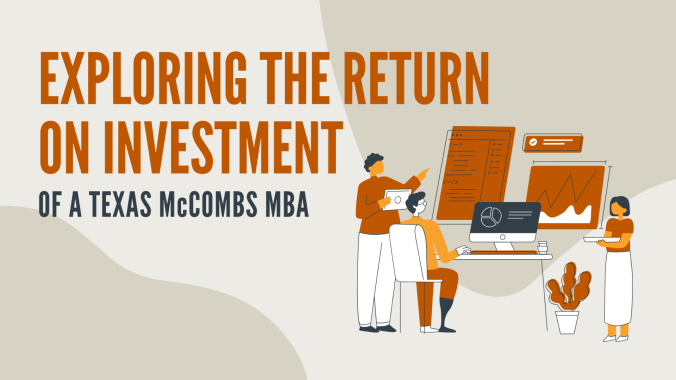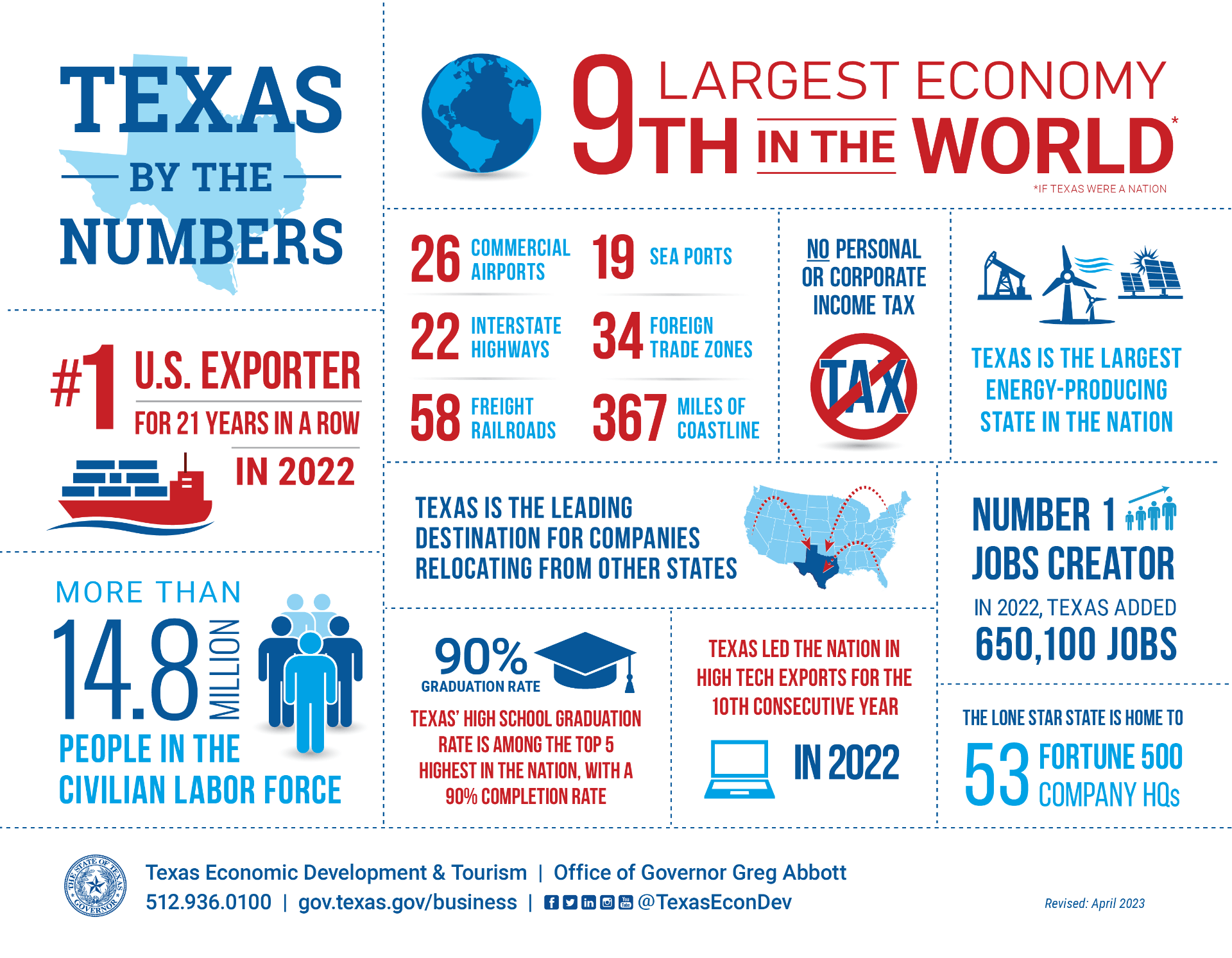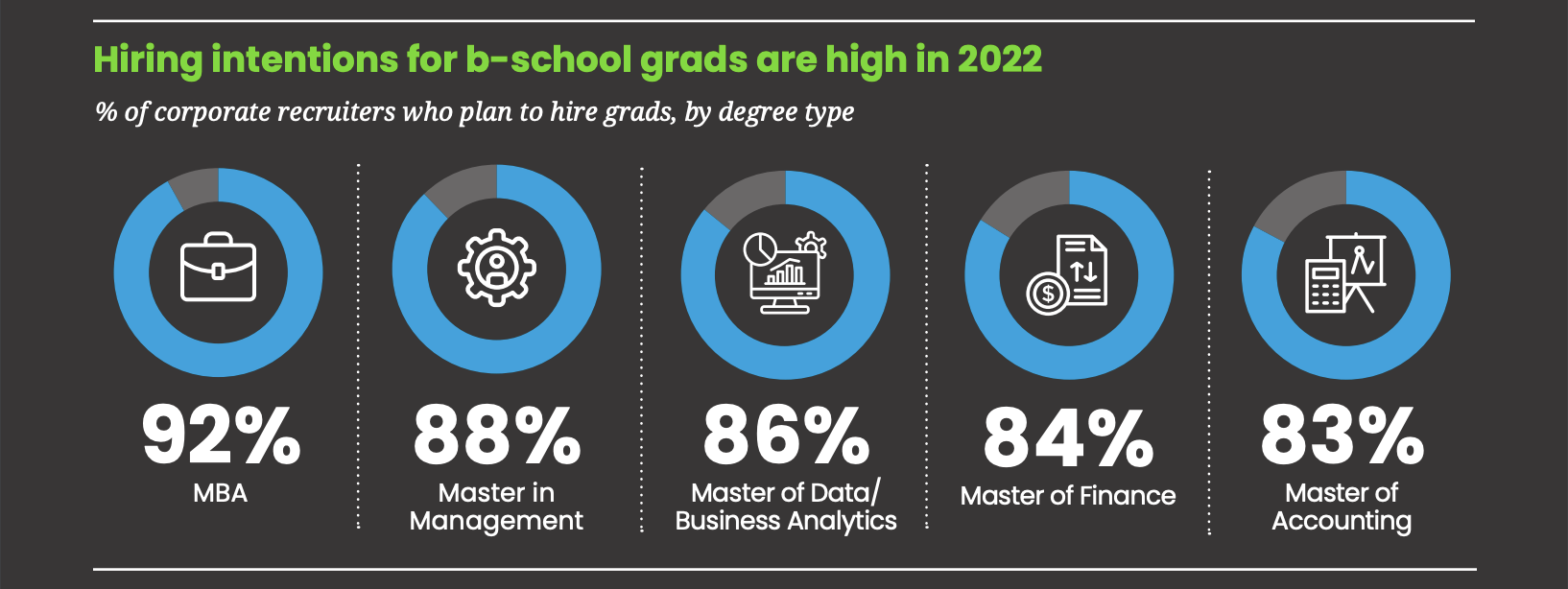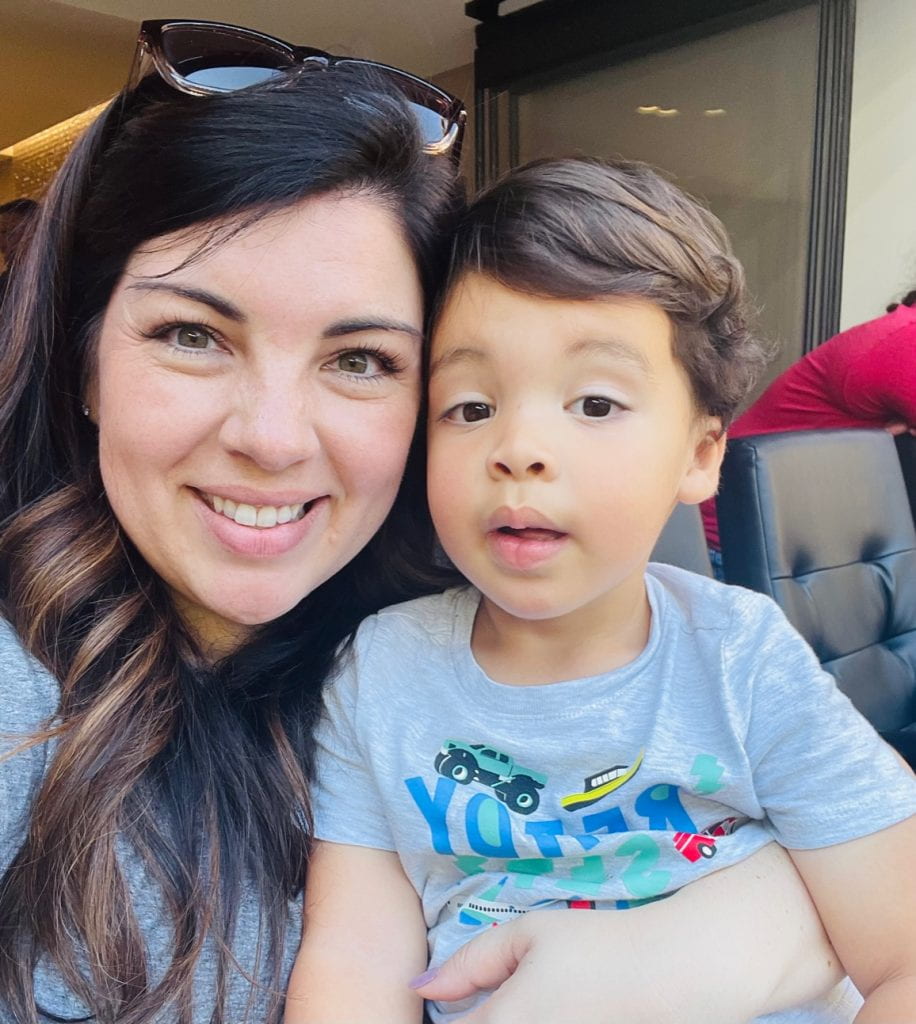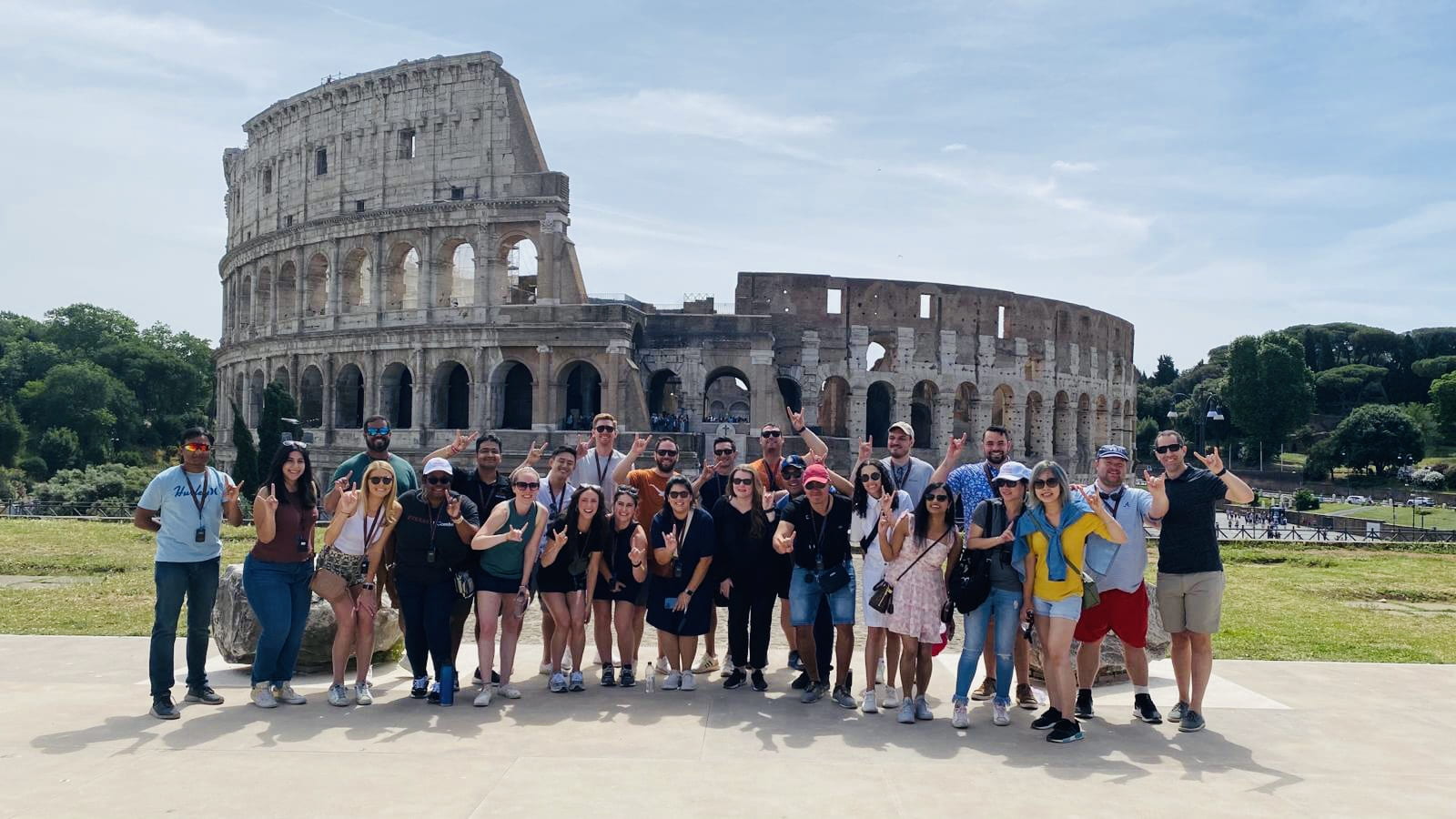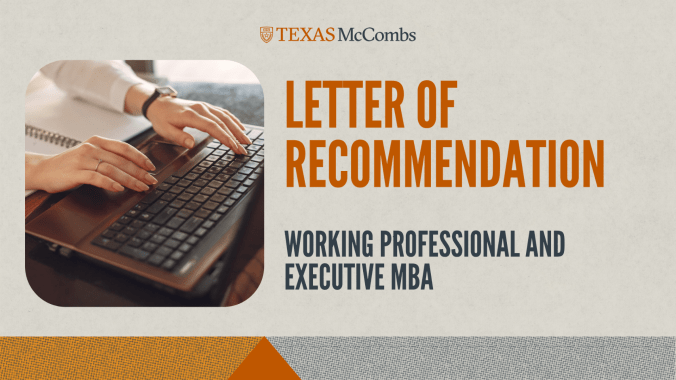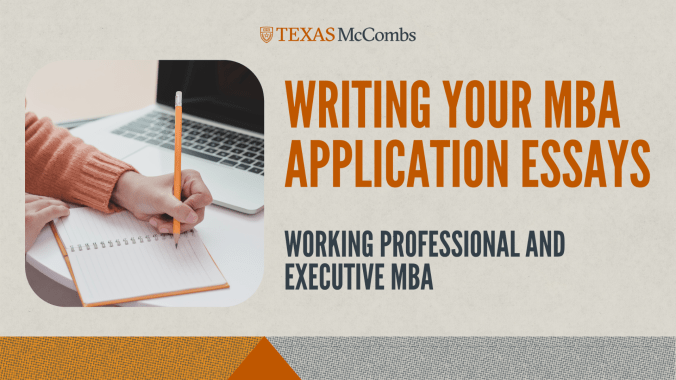This MBA Insider content comes from Christie Jenkins, Senior MBA Recruiting and Admissions Officer, Working Professional MBA.
There’s a saying in undergraduate admissions that a student’s decision on where to go to college ultimately boils down to the 3 P’s: price, proximity, and prestige. I’m not aware of a 3 P’s equivalent for MBA programs, so allow me to invent one. The 3 R’s: Rankings, Recruiting, and ROI.
It’s no secret that future MBA’s are a little more objective and outcomes-focused with this decision than they may have been when choosing a college for undergrad. Undergrad is all about the experience, personal growth, and the journey as well as the destination. Those things certainly matter for your MBA selection too, but with an added emphasis on results and tangible benefits. Objectively, why should someone spend 2 years and $100,000+ on an MBA? What is the value?
RANKINGS
Or maybe this R should be reputation? Either way, Texas McCombs excels at both. U.S. News and World Report ranks our MBA programs as the following:
#6 Working Professional MBA
#14 Executive MBA
#20 Full-Time MBA
It goes without saying that our MBA programs are the best in Texas. Our programs also benefit from The University of Texas at Austin brand. Visit anywhere in the world and someone will be able to tell you about the burnt orange Texas Longhorns, and possibly that “What starts here changes the world.” Simply put, you will never have to explain what UT is all about. People know.
RECRUITING
Employers want to hire Texas McCombs MBAs. We partner with more than 400 employers annually, and the list is always growing. A few of our top recruiting partners who hired 10 or more MBAs last year include Amazon, Dell Technologies, PricewaterhouseCoopers, Boston Consulting Group, and Deloitte Consulting.
Texas has the fastest-growing job market in the country, according to the U.S. Bureau of Labor Statistics, and has been ranked No. 1 Best State for Business for 18 consecutive years. Texas is also home to the most Fortune 500 companies, with more than 135 companies that have relocated their headquarters to Texas since 2020. This list includes AT&T, CBRE, Charles Schwab, Exxon Mobil, Hewlett Packard, Oracle, Tesla, and more. Add in that Texas has no state income tax and a comparatively low cost of living, and you can see why this is a great place to live and work.
To help you land those jobs, you’ll also have unlimited access to career coaching, even after you graduate. Our career coaches can help you refine your brand, prepare for interviews, negotiate your starting salary, and much more. They’ll be there for you as a student and after graduation, as MBA alumni have lifetime access to career resources and coaches.
ROI
For those uninitiated in the MBA lingo, ROI, or Return on Investment, is a way to measure the profitability of an investment. Another way of thinking about this concept is the payback period, or how long it will take for an investment to pay for itself.
According to the GMAC Corporate Recruiters Survey, bachelor’s degree holders from the United States are expected to earn a median of $50,000 annually. The median starting salary for an MBA graduate is $95,000 – and that’s just a graduate of any MBA program!
For a Texas McCombs Full-Time MBA grad, the average starting salary for the Class of 2022 was $145,000. Therefore, the average incoming student can expect a $95,000 pay increase at the time of graduation ($145,000 McCombs MBA salary minus $50,000 bachelor’s degree holder salary). Compare that to the cost of our MBA programs (between $105,100-$149,500) – you’ll see the typical payback period for a McCombs MBA is less than 2 years!
 After your McCombs MBA investment has paid for itself, you’ll have a lifetime to reap the rewards. If you are in your 20s or 30s, with an expected retirement age of 65, then you could have 30 or 40 more years ahead of you in your career. Wouldn’t it be nice to make the most of your incoming-earning years? The earlier you start, the more time you have to benefit from your increased post-MBA salary.
After your McCombs MBA investment has paid for itself, you’ll have a lifetime to reap the rewards. If you are in your 20s or 30s, with an expected retirement age of 65, then you could have 30 or 40 more years ahead of you in your career. Wouldn’t it be nice to make the most of your incoming-earning years? The earlier you start, the more time you have to benefit from your increased post-MBA salary.
According to Poets and Quants, the expected lifetime earnings of a McCombs MBA graduate is $6.35 million.
For those who want to see the numbers, here’s your ROI calculation: profit (or gross income minus cost) divided by cost. For a McCombs Full-time MBA, that is $6,350,000 – $105,100 / $105,100, which works out to an ROI of 59.42. Over the course of your lifetime, your MBA will pay for itself more than 59x.
Of course, this barely scratches the surface.
The true value of an MBA can’t be measured in dollars. It includes your personal growth and development, the networking and relationships you will build, the intrinsic value of gaining knowledge and confidence, job security, upward mobility, and much more.
Only you can calculate what an MBA will mean for your future, but hopefully, you are reassured to know that a McCombs MBA makes objective, financial sense in addition to being a great experience.
Ready to get started on your MBA journey? Visit Texas McCombs MBA to learn more about our programs, application components, deadlines, and upcoming events, or take a peek into student life on Instagram. Please reach out to the MBA Admissions Team with any questions.
